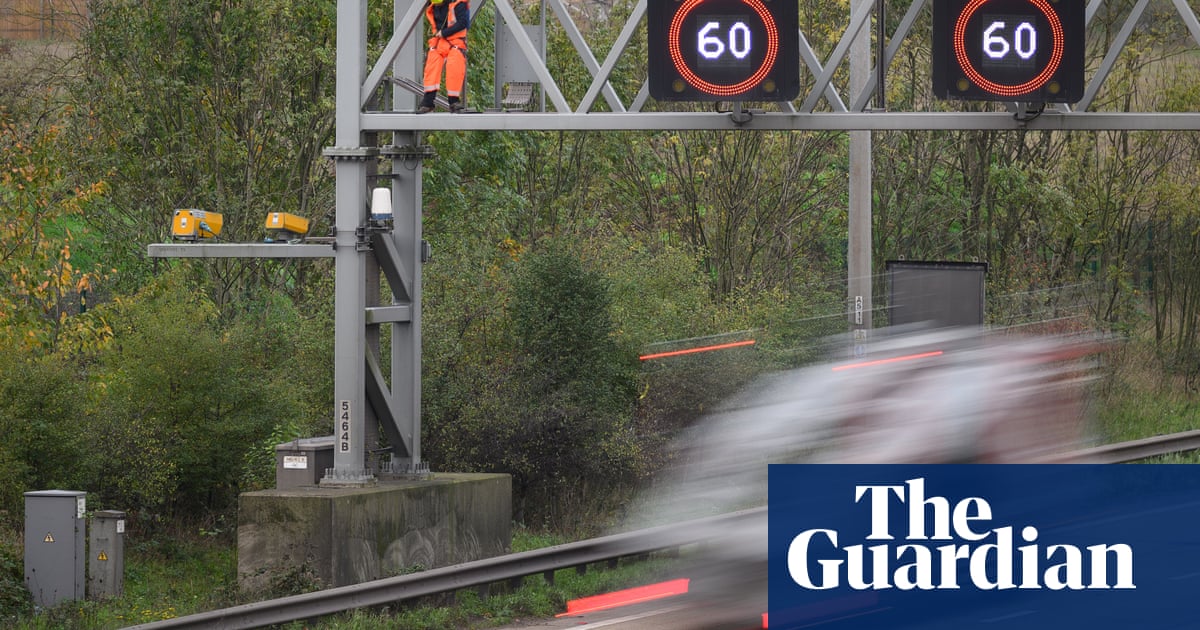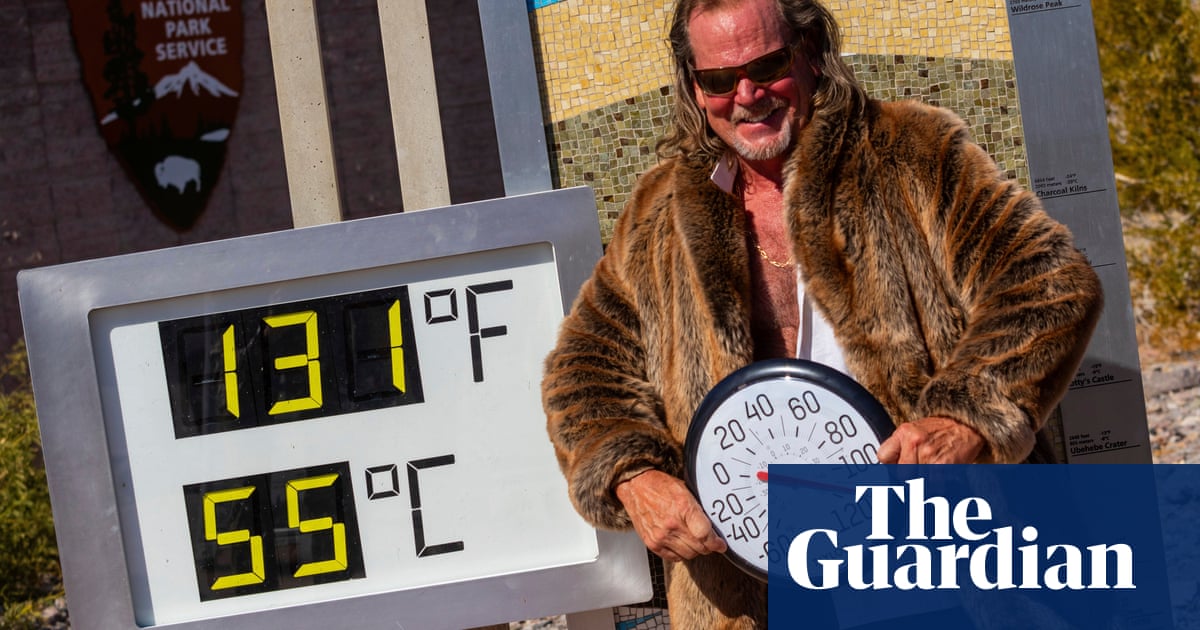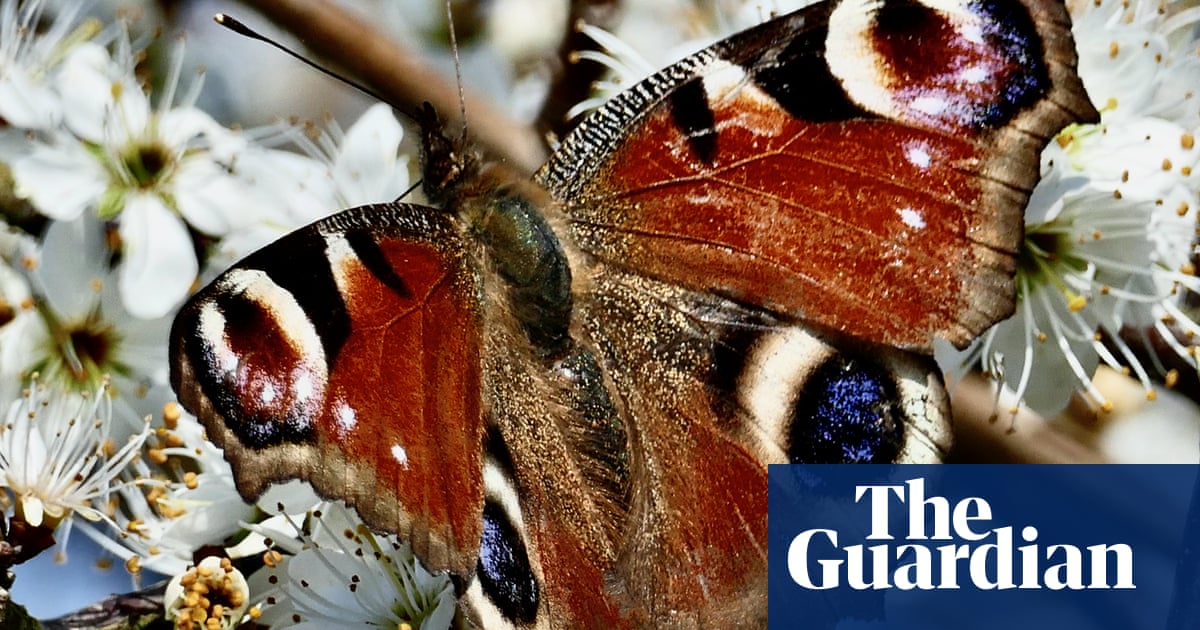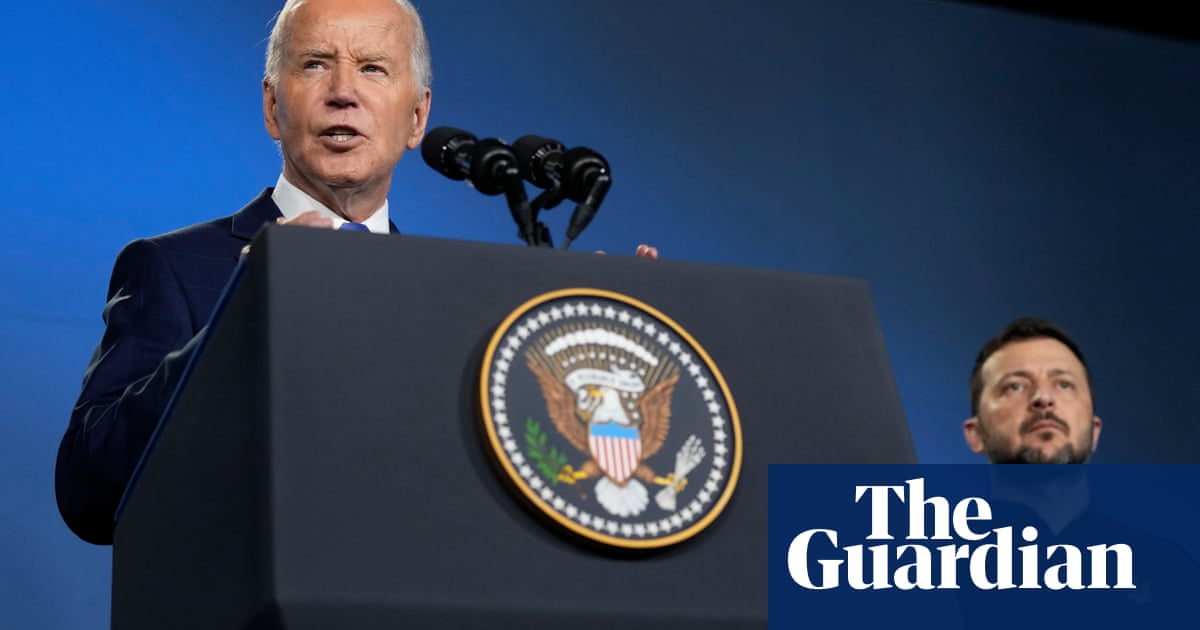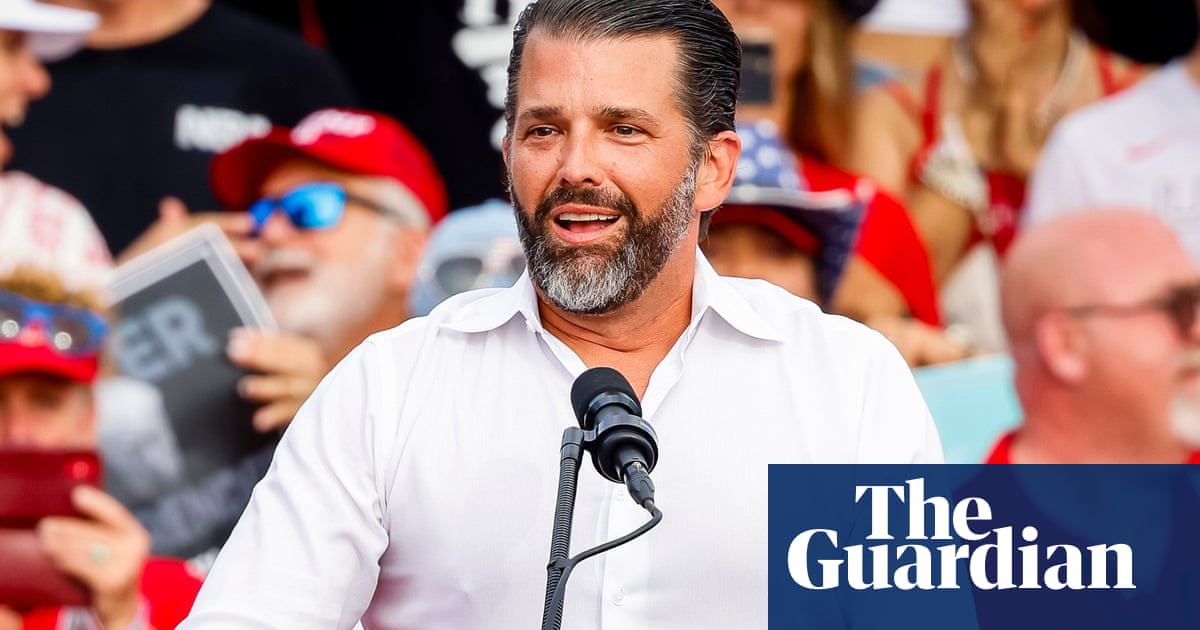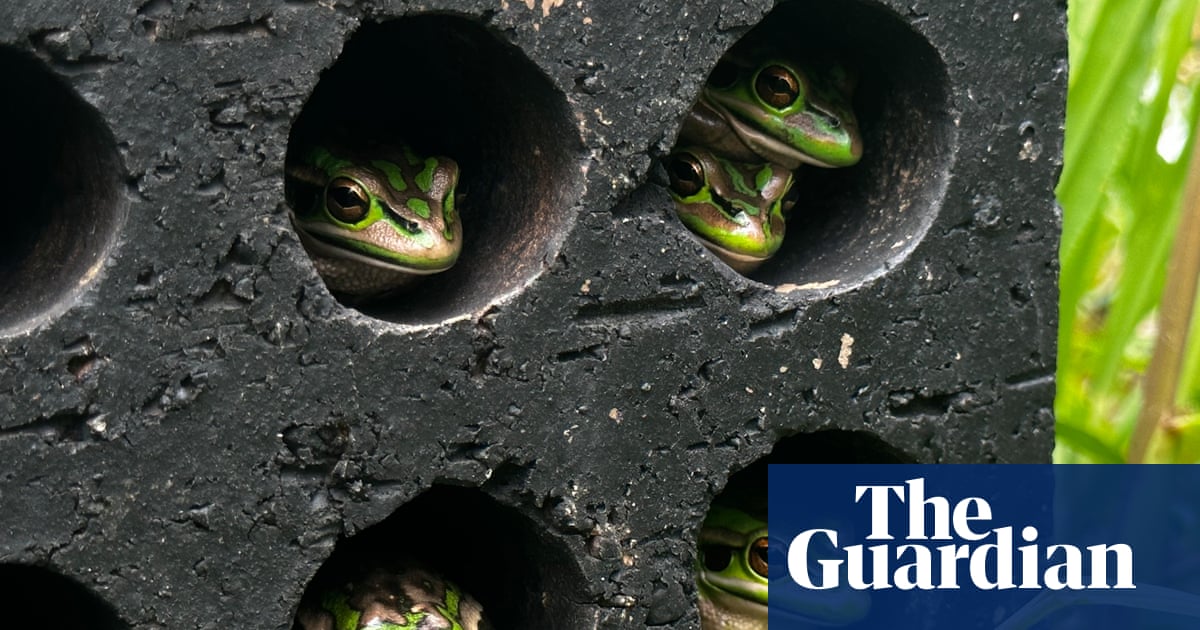As part of his role as UN rapporteur for environmental defenders, Michel Forst has been watching proceedings against climate activists at courts across Europe.
But he may not have seen anything like what unfolded at Southwark crown court in London over the past two and a half weeks, where five Just Stop Oil activists were convicted for conspiring to cause gridlock on the M25 in November 2022.
On the days Forst visited, he witnessed three of the five defendants being arrested in court and dragged to the cells, protesters outside attempting to warn jurors they were not hearing the full case and a judge desperately trying to maintain control over his courtroom.
The judge, Christopher Hehir, had ruled that information about climate breakdown could not be entered into evidence, and could only be referred to by defendants briefly as the âpolitical and philosophical beliefsâ that motivated them â which he would tell the jury were in any case irrelevant to their deliberations.
But the defendants had other plans. They sought to turn Hehirâs court into a âsite of civil resistanceâ, causing as much disruption as necessary to ensure that if the jury could not see their evidence on climate breakdown, then the jurors could at least be in no doubt it was being kept from them.
By the time the jury retired to consider a verdict, police had been called into court no fewer than seven times, four of the five defendants had been remanded to prison and 11 others were facing contempt of court proceedings for protests outside the courtroom.
Roger Hallam, Daniel Shaw, Louise Lancaster, Lucia Whittaker De Abreu and Cressida Gethin were standing trial on charges of conspiracy to cause a public nuisance, accused of being the âqueen beesâ behind a series of protests on the M25.
Under the banner of the climate campaign group Just Stop Oil, already notorious for its road-blocking protests, they were said to have recruited 64 people to climb gantries over Londonâs orbital motorway, forcing police to stop traffic on four consecutive days.
The prosecution said the disruption amounted to £750,000 of economic damage and a £1m policing cost, with about 709,000 drivers affected. The judge warned the defendants they faced a harsh penalty if convicted.
Two men who blocked the Queen Elizabeth II bridge the month before the gantry protests were jailed for two years each, sentences Hehir said he would take as a reference point.
But why was Forst there in the first place? What can only now be reported is that he had made an extraordinary intervention on the eve of the trial, issuing a public statement criticising the treatment of Shaw in particular. As he awaited trial, Shaw had already spent more than 100 days on remand, been forced to wear an ankle tag, made subject to a strict curfew and banned from meeting his co-defendants or attending environmental demonstrations.
Forstâs intervention came amid increasing alarm at tightening restrictions on protest rights. In the past two years, the UK government has passed two wide-ranging laws targeting direct actions by climate activists, creating a host of new offences with potentially stiff penalties. At the same time, with juries having repeatedly acquitted defendants prosecuted for climate and other protests on the basis that their cause was just, the attorney general had applied to the court of appeal to limit the kinds of defences available in such cases.
Forst had already written to the UK government to express concern over these developments, but issued his latest statement after getting no response. âI fail to see how exposing Mr Shaw to a multiyear prison sentence for being on a Zoom call that discussed the organisation of a peaceful environmental protest is either reasonable or proportionate, nor pursues a legitimate public purpose,â Forst wrote. âRather, I am gravely concerned that a sanction of this magnitude is purely punitive and repressive.â
That Zoom call was a key piece of evidence for the prosecution case. Made just days before the M25 protests began, the call was, the prosecution said, part of efforts to recruit volunteers to take part in the direct actions. Unbeknown to those taking part, it had been infiltrated by a Sun journalist who recorded it and passed it to the Metropolitan police.
On the face of it, the prosecution evidence seemed damning â and was mostly uncontested by the defendants. But it was only after prosecutors completed their case that events in court began to get really interesting.
The defendants had wanted to mount a defence of reasonable excuse. They proposed inviting expert witnesses such as the geophysicist Bill McGuire, who has written extensively on the implications of climate breakdown, to explain why the urgency of the unfolding environmental crisis warranted their actions. Such defence strategies have worked in some previous cases, with defendants acquitted in the face of apparently conclusive evidence.
But Hehir ruled that the defendants in this case could not present any evidence about the climate to the court, save for the brief statements about their philosophical and political beliefs that ultimately would have no bearing on the verdict.
It was in this context that, as the second week of the trial began, protesters began appearing each morning outside the court, displaying placards saying: âJurors deserve to hear the whole truth.â
Of the defendants, only Hallam disputed the role the prosecution claimed he played in the conspiracy. He told the court he had merely been asked to âgive the case for civil disobedienceâ.
âI wish to say on oath that I was not involved in this campaign,â he said. However, he went on to argue that even if the jury determined he had played a role in the conspiracy, they should find him and his co-defendants not guilty on the basis they had a reasonable excuse or justification for the actions they took.
In a three-hour address, punctuated by interruptions from an irritated Hehir, Hallam lectured the jury on his interpretation of the law, and why, he claimed, it showed the activists had an excuse for blocking the M25 to raise the alarm about climate breakdown.
Hehir told jurors Hallamâs legal analysis was peppered with mistakes. He repeatedly sent the jury out to admonish Hallam for referencing climate science he had ruled irrelevant to the case. But the judge proved more patient than the defendant seemed to expect. In the end, Hallam told jurors: âI apologise to you if Iâm a little bit incoherent, I didnât actually expect that I was going to get this far.â
He did not get much further. The following morning, the judge brought Hallamâs evidence to an end and, after the defendant refused to answer a cross-examination and then refused to leave the witness box, insisting he was not finished, Hehir called police into the court and had him arrested for contempt.
âDemocracy in action, guys! Democracy in action,â Hallam said to watching reporters, as he was dragged into the dock, then down to the cells.
It was the first of many such scenes. Later that same day, Shaw was arrested and taken to the cells in almost identical circumstances, and Hehir sent jurors â who had not witnessed the arrests â home early. âI have never had to order a defendant to be arrested in a courtroom before and Iâm very sad to have had to do that not once, but twice today,â the judge said.
On the face of it, Hallam and Shawâs theatrics looked self-defeating. But the defendants believed they contributed to a victory. The following morning, on agreement, four âfacts not in disputeâ relating to the climate crisis were read into the court record by Fiona Robertson, second barrister for the crown. They were: that the climate crisis was âan existential threat to humanityâ; that global heating above 1.5C would have catastrophic consequences; that in the past 12 months average global temperatures were 1.6C above the pre-industrial baseline; and that in October 2022 the government had opened a new round of oil and gas licensing.
It was a development the defendants and their supporters said amounted to the prosecution conceding the climate crisis was âan existential threat to humanityâ â and one that they were to refer to throughout the remaining days of the trial.
Forst was in court to see this. He also witnessed much else. Hallam, bailed the previous day, was dragged out of court again after he began speaking straight to jurors during Lancasterâs evidence. Shortly after, Shaw directly challenged the judge, asking: âWhy are you not trying the people causing this crisis?â He too was dragged out. Lancaster was next, for refusing to leave the witness box, and that night, all three were remanded to prison. Gethin had to wait but was also arrested for contempt on both Monday and Tuesday.
By the end of the trial, Whittaker De Abreu, the only one who had not represented herself, was the only defendant left in court.
As a punishment for their âpersistent disruptionâ, Hehir slashed the time given to each defendant from one hour to 20 minutes. He further prohibited any mention of the climate crisis, the legal defences he had disallowed or the principle of jury equity â the idea that jurors can acquit based on their conscience.
As Hallam, Shaw, Lancaster and Gethin gave their speeches from behind the reinforced glass screen of the dock, they each proceeded to flout Hehirâs prohibitions, arguing they had been denied a right to a fair trial.
Hallam told jurors: âItâs blindingly obvious to us here first that you have not been given all the evidence you need. You cannot be sure of our guilt if you are not sure that you have not been given the evidence ⦠we have received no good reason why we are not allowed to tell you what is blindingly obvious, namely what Iâm not allowed to speak about. If you are not allowed to hear the blindingly obvious then itâs not a fair trial is it?â
It took just a dayâs deliberations for the jury to unanimously find them guilty.
Given the recent history of UK climate protest trials, in which defendants have been sentenced to jail for merely mentioning the words âclimate changeâ, and notwithstanding the dramatic arrests in court, Forst said he was surprised the judge gave them an opportunity to mention climate breakdown at all.
âBut the little latitude they had to mention climate change was in the meantime emptied of its very meaning by the fact that, overall, the jury was told to ignore most of it,â he added.
Forst also said he was dismayed by the judgeâs decision to refuse the defendants a chance to present more fully their evidence about climate breakdown. âThatâs precisely one of the serious concerns I have about what is happening in some courts in the UK. Defendants should be allowed to explain why they have decided to use non-conventional but yet peaceful forms of action, like civil disobedience, when they engage in environmental protest,â he said.
It is not just in the UK that climate defenders are facing persecution, according to Forst, but the problems in this country are particularly acute. Protesters in countries such as France and Germany also faced political opposition â and in some cases, police brutality â but when it came to judicial persecution, the UK was unique, he said.
â[Elsewhere] you see environmental activists who block roads or sporting events being sentenced to a fine, or even sometimes suspended prison sentences for instance,â Forst said. âHowever, while I donât have a full picture of whatâs happening in every country, the UK is a nightmare for climate activists from this point of view, in the sense that the sentences imposed in other countries are neither that harsh, nor that widespread.
âFacing several years of imprisonment for taking part in a Zoom call â this is something I have not seen anywhere else and it is shockingly disproportionate.â
The nightmare is just beginning for Hallam, Shaw, Lancaster, Gethin and Whittaker De Abreu, who have all been remanded to prison before sentencing next Thursday. Hehir has indicated that they face long sentences.
